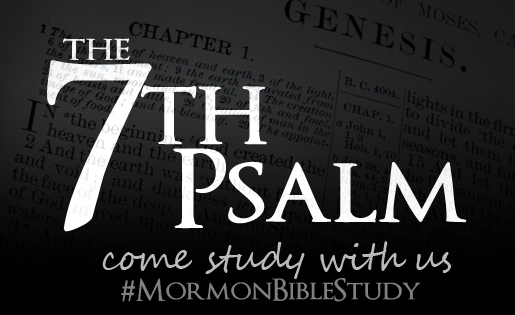Little, in fact, had either the Vatican or Galileo comprehended just how serious a rival Jupiter and its moons are to Earth and Luna. They are more fairly compared to the entire solar system. We now know that Jupiter comprises two-thirds the mass of all nine planets and it is the biggest of the so-called gas giant planets, a class that also includes Saturn, Uranus, and Neptune. Unlike the inner terrestrial planets - Mercury, Venus, Earth, and Mars - these planets lack solid surfaces. Instead, they are made from the same stuff as stars: hot gas. ...
So, too, many of the Jovian satellites are more like planets than moons. The terrestrial planets only have three moons among them - Luna and Mars' satellites, Phobos and Demos. But the gas giants are surrounded by swarms of smaller bodies. Jupiter has the largest entourage, with eight regular moons and more than 60 so-called irregular moons. These moons are categorically different from teh terrestrial variety: Luna is probably a chip off Earth's block and the Martian moons may be captured asteroids. In contrast, the regular Jovian moons likely condensed from spare material around a proto-Jupiter, much in the same way as the planets coalesced from leftovers swirling near our newborn Sun.
-The Moons of Jupiter, p11
The Asters are the second largest family of flowering plants, surpassed only by the mostly tropical Orchid family. Worldwide, there are about 920 genera and 19,000 species, including 346 genera and 2,687 species in North America. Aside from lettuce (Lactuca), artichoke (Cynara), and endive (Cichorium), surprisingly few genera are cultivated for food.
-Botany in a Day, p 163
You can employ the same techniques. When a student asks a question, be careful lest you answer it! Or more emphatically, be careful lest the teacher answer it. How easy it is for a teacher to respond quickly to simple questions, to close a conversation that might have ignited a sparkling and lively discussion. The wise teacher deftly and pleasantly responds, "That's an interesting question. What does the class think of this?"
-Boyd K. Packer, Teach Ye Diligently, p 68
God left the world unfinished for man to work his skill upon. He left the electricity in the cloud, the oil in the Earth. He left the rivers unbridged and the forests unfelled and the cities unbuilt. God gives to man the challenge of raw materials, ... not the east of pictures unpainted and the music unsung and the problems unsolved... That man might know the joys and glories of creation.
-Thomas S. Monson, quoted on Facebook
O Lord, rebuke me not in Thine anger, neither chasten me in Thy hot displeasure. Have mercy on me, O Lord; for I am weak: O Lord, heal me; for my bones are vexed. My soul is also sore vexed: but Thou, O Lord, how long? Return, O Lord, deliver my soul: oh save me for thy mercies' sake.
-Psalm 6:1-4
You cannot exercise faith in God until we acknowledge that He exists and we have a correct understanding of His character, nature, and attributes. So the beginning of faith starts in the understanding of Christ.
-David A. Bednar, quoted on Facebook
The vision that you glorify in your mind, the ideal that you enthrone in your heart, this you will build your life by, and this you will become.
-James Allen, quoted by Shiloah Baker in "Training Mother Helpers"
Here [
Helaman 6:7-9] we find one of the (extremely) few times peace existed between
these two groups [the Nephites and the Lamanites], and the narrator lists for us a few resulting and
related benefits. The first product of peace mentioned is
open migration
between the inhabitants of each distinct civilization. Free intercourse
and commerce have special mention, and are corollaries to the
unrestricted ability to travel and reside where one pleases. Second, the
record notes that this exchange between the individuals of each group
yielded
increased prosperity for all involved. They became “exceedingly rich” and had “an exceeding plenty”. As with other scripture, this one can and should be
likened unto us.
-Conner Boyack,
Immigration, Individual Rights, and the Constitution
You’re not self-governing if you can’t rule yourself. Classical education is the means to freedom, the
sine qua non of a free people, because it trains people in self-governance, in perceiving and living with the truth.
-Andrew Kern, quoted in "
In The Common Core Era, Families Flock To Its Opposite"
More than once I have scolded members of a class just a little when they seemed to ridicule in one way or another a question asked by one of the group. And I have repeated with some emphasis the statement that there is only one stupid question: the one that isn't asked. Every student should have an open invitation to ask questions all of the time.
-Boyd K. Packer, Teach Ye Diligently, page 74
We make it a consistent practice in our family to respond to the questions of our children, an in doing so, we find that they ask many questions. If parents are not careful, they can dam up the quest for knowledge.
-Boyd K. Packer, Teach Ye Diligently, page 74
"All those antagonistic questions he asked you; it was just marvelous the way you handled them. He was so antagonistic and bitter and yet the interview itself was successful."
I have never forgotten his answer. He said, "I never pay any attention to the questions - that is, if the interviewer is antagonistic. If he doesn't ask the right questions, I give answers to the questions he should have asked."
-Boyd K. Packer, Teach Ye Diligently, p77
There is another important matter we should discuss. A teacher naturally wants everyone to be satisfied and in agreement with him. That is not always to be. Often in the best teaching someone is left unsatisfied, perhaps even upset. Particularly this is true if we have an encounter with someone who is antagonistic. A mature teacher will know from the beginning that when the conversation is over someone will be unsettled and upset. Let it not be the teacher.
-Boyd K. Packer, Teach Ye Diligently, p83
In many churches of the world a doctrine is taught that holds that men are basically evil; that they are earthy and carnal and devilish, conceived in sin and possessed of a tendency to be wicked. This doctrine holds that the corrupt and evil nature of man must be conqured. It holds out the meager hope that by an extension of grace man may, on occasion, be lifted from his evil, carnal,and groveling state. In simple terms it avers that man is, by his very nature, inclined to be bad.
That is false doctrine. ... The doctrine is not only false, it is very destructive. ...
How glorious it is to have the revealed word of God, to know that we have a child-parent relationship with Him. If we are of His family, we have inherited the tendency to be good; not evil. ... God is our Father. We therefore are inherently good.
-Boyd K. Packer, Teach Ye Diligently, p88
I am fully aware that in the world there are individuals whose basic motivation seems to be contrary and disruptive and evil. I know this exists, but it is against their nature.
-Boyd K. Packer, Teach Ye Diligently, p89
For my part, whatever anguish of spirit it may cost, I am willing to know the whole truth; to know the worst, and to provide for it.
-Patrick Henry, Give Me Liberty or Give Me Death speech before the Virginia Convention, 1775.
If you have good thoughts they will shine out of your face like sunbeams and you will always look lovely.
-Attributed to Roald Dahl on Facebook
The world is indeed full of peril, and in it there are many dark places; but still there is much that is fair, and though in all lands love is now mingled with grief, it grows perhaps the greater.
-Haldir, Elven guard of Lothlorien, Fellowship of the Ring, p 452
Man's greatest happiness comes from loosing himself for the good of others.
-Attributed to David O. McKay on Facebook.
He understands. He can give pardon and bring peace. THE SPECIALTY OF THE SAVIOR IS MERCY. And He requires that we be specialists in mercy.
-Marion D. Hanks, "
My Specialty is Mercy" October Conference 1981








